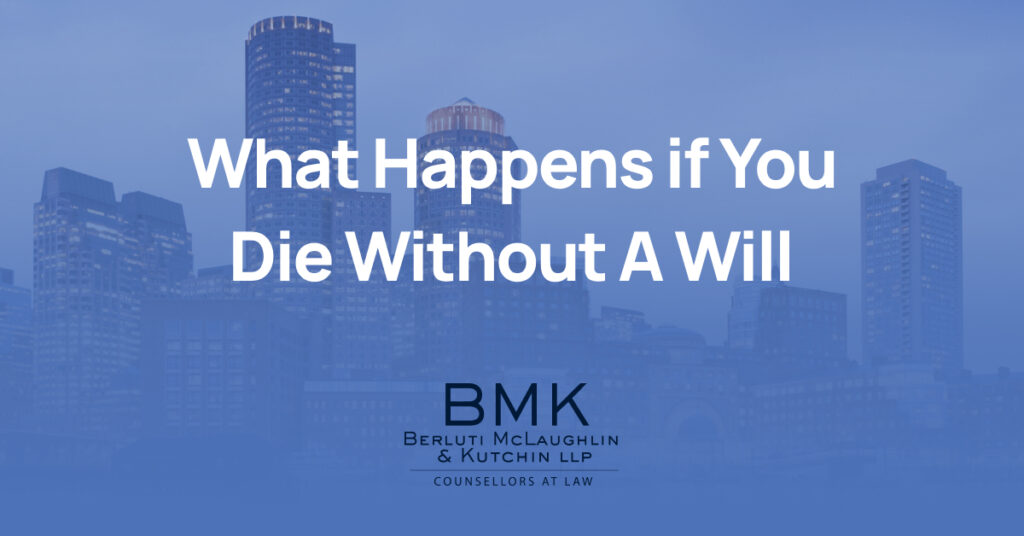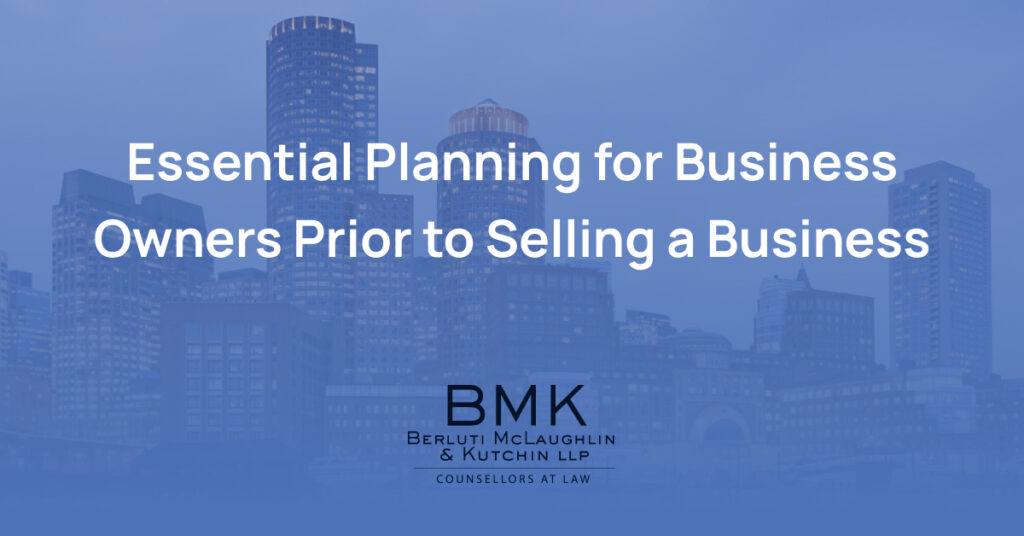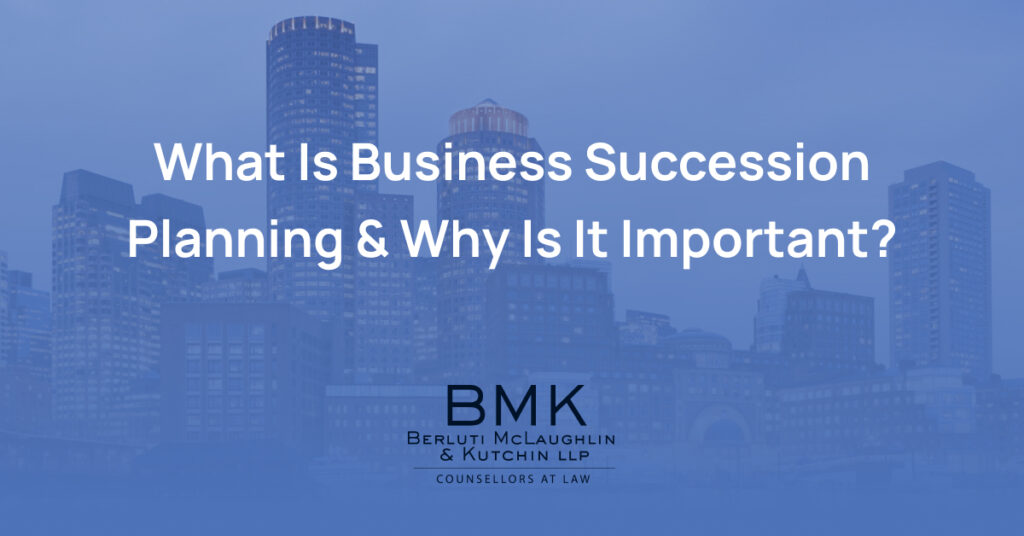
Most people know that having a will is crucial to ensure your assets end up where you want them to go after you die. However, common misconceptions abound about what happens if you die without a will. What happens if you don’t have a will is simple and complicated. Simply, your assets get distributed to your legal heirs based on state law. Identifying legal heirs and resolving who gets what is more complicated.
To avoid the risks of your assets ending up in different places than you would have wanted, contact BMK Legal. We can help you create a will that addresses what is most important to you. Our legal team can help you make a will and a comprehensive estate plan to ensure you care for what matters.
What Happens If You Die Without a Will in Massachusetts?
Per the Massachusetts Uniform Probate Code, to distribute estate assets, you typically administer the deceased person’s (decedent’s) estate in probate court.
“Intestate succession” is the process that occurs when a decedent leaves no will and involves:
- Opening the estate by notifying the nearest probate court of the decedent’s death,
- Requesting the court appoint an administrator to manage the estate,
- Notifying interested parties that probate is occurring,
- Inventorying the decedent’s assets and liabilities,
- Identifying the decedent’s legal heirs,
- Resolving creditor claims against the estate,
- Distributing remaining assets, and
- Closing the estate.
Once the administrator is appointed, they take responsibility for completing each step in the process.
Opening the Estate
Generally, interested people or parties can open the decedent’s estate. These include the decedent’s legal heirs—those individuals or entities entitled to own some part of the estate. You typically have up to three years after the decedent’s death to begin administration.
The interested party opens the estate by filing information about the decedent’s death in the county where they lived and asking the court to begin estate administration. If the decedent did not live in Massachusetts but owned property here, you file in the county where the property is located.
When the interested party asks the court to open the estate, they can request informal or formal proceedings. The court oversees and must approve most of the administrator’s actions in formal proceedings. In informal proceedings, the administrator has more flexibility and control over the process. If there is a chance that someone will challenge part of the estate administration, the court typically does not authorize informal administration.
Appointing an Administrator
Next, the court needs to appoint an administrator. The administrator, equivalent to an executor, serves as the estate’s personal representative, acting in the estate’s best interests throughout the probate process.
Although almost any legal heir can serve as administrator, the law establishes priority among them. If all interested parties consent to appointing a particular person as administrator, they can sign a document asking the court to approve the appointment. Otherwise, if the decedent left a surviving spouse, they have priority. The decedent’s other heirs are next. If the decedent had no surviving heirs or they cannot be located, the court may appoint a public administrator.
Notifying Interested Parties
The individual who initiates the action, typically the administrator, must notify the decedent’s heirs that the proceeding is occurring. They may also need to publish details about the proceeding in a general circulation newspaper.
Inventorying Assets and Liabilities
After the appointment, the administrator inventories the decedent’s assets and liabilities. This means putting together a list of every known asset and debt and searching for unknown assets or debts.
Identifying Heirs
Heirs are individuals related to the decedent through blood, marriage, or adoption who are still alive when they die. Those who are more closely related get priority.
The surviving spouse takes the total estate if the decedent did not have surviving parents or surviving descendants who are not also descendants of the spouse (the spouse had no step-children). Otherwise, the surviving spouse is entitled to the estate as follows:
- If the decedent left a surviving parent, the spouse gets $200,000 plus 3/4 of the remaining estate above $200,000;
- If the surviving spouse had children with someone other than the decedent, the spouse gets $100,000 plus 1/2 of any remaining estate balance above $100,000; and
- If the decedent had children they did not share with the surviving spouse, the spouse gets $100,000 plus 1/2 of any remaining estate balance above $100,000.
If the decedent left no surviving spouse, priority moves through each of the following surviving relatives of the decedent:
- Descendants,
- Parents, and
- Siblings and their descendants.
If the decedent had no surviving relatives on that list, you consult Massachusetts’ Degrees of Kinship Chart. If the decedent still has no legal heirs, the commonwealth of Massachusetts takes their estate—unless the decedent was a veteran, in which case the estate benefits other veterans.
Resolving Creditor Claims
If the decedent owed debts at the time of death, their creditors can raise claims against the estate, asking the estate to pay what the decedent owed. The administrator is responsible for responding to these claims to ensure their legitimacy before paying them.
Distributing Assets
With debts satisfied, the administrator distributes the remaining estate assets. Depending on what those assets include and who the decedent’s heirs are, this process may require selling certain properties, even those with sentimental value. If all heirs agree, you can sometimes bypass this necessity.
Closing the Estate
Finally, the administrator closes the estate. Closing the estate involves detailing what occurred during the process and ensuring no objections remain. Once the estate is closed, the administrator typically receives compensation for their work.
Avoiding What Happens If You Don’t Have a Will When You Die
The best way to avoid what happens if you don’t have a will when you die is to create a will. Misconceptions also abound about what qualifies as a valid will. To ensure your will is legally binding, contact BMK Legal today. Our multidisciplinary team can help you create an estate plan tailored to your life.
Resources:
Mass. Gen. Laws ch. 190B § 1-201, link.
Mass. Gen. Laws ch. 190B § 2-101, link.
Mass. Gen. Laws ch. 190B § 2-102, link.
Mass. Gen. Laws ch. 190B § 2-103, link.
Mass. Gen. Laws ch. 190B § 2-105, link.
Mass. Gen. Laws ch. 190B § 2-106, link.
Mass. Gen. Laws ch. 190B § 3-103, link.
Mass. Gen. Laws ch. 190B § 3-105, link.
Mass. Gen. Laws ch. 190B § 3-108, link.
Mass. Gen. Laws ch. 190B § 3-201, link.
Mass. Gen. Laws ch. 190B § 3-301, link.
Mass. Gen. Laws ch. 190B § 3-306, link.
Mass. Gen. Laws ch. 190B § 3-308, link.
Mass. Gen. Laws ch. 190B § 3-311, link.
Mass. Gen. Laws ch. 190B § 3-501, link.



